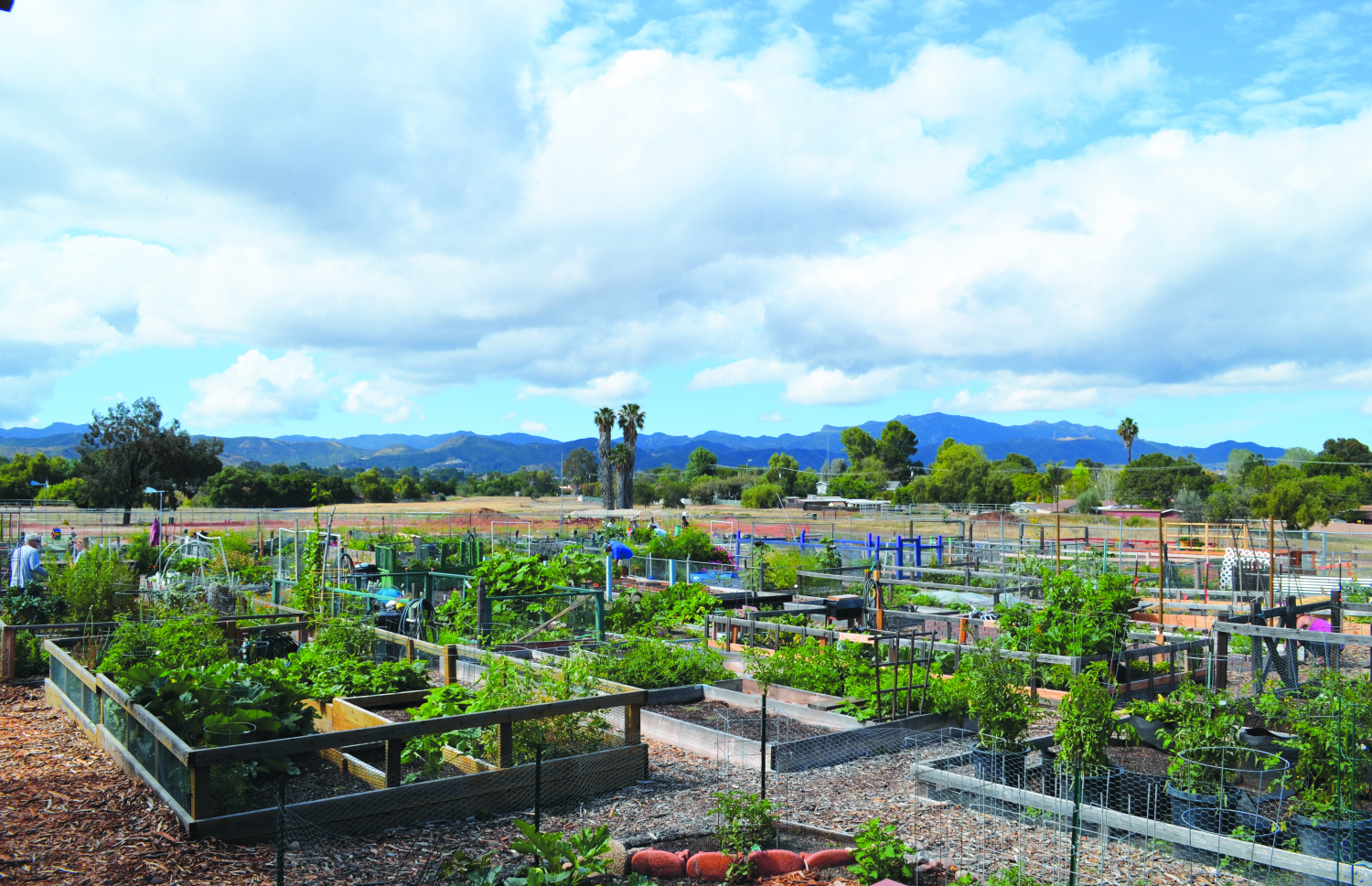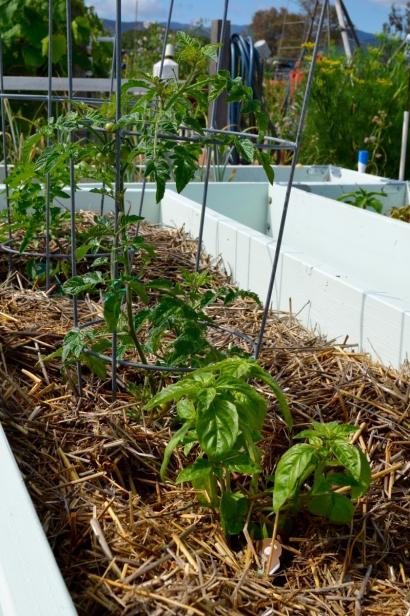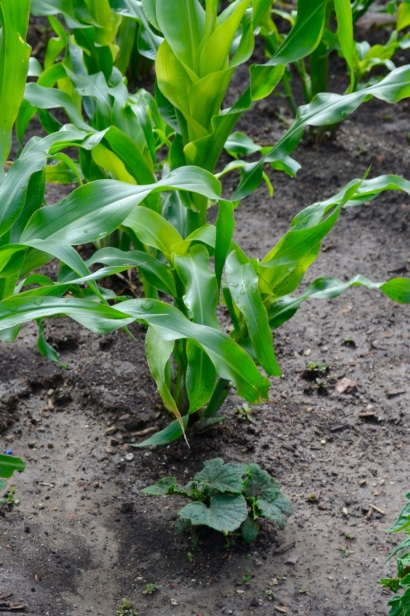Gardening BFFs
If everything in nature is connected to and influences everything else, as many believe, then it makes sense that particular plants would share a symbiotic relationship.
Throughout time, some gardeners have discovered that certain plants can either help or hinder each other when planted nearby. This phenomenon—called companion planting, companion gardening, intercropping or plant association—has been observed and practiced by gardeners for centuries.
Its fans believe this method can produce higher yields and reduce the need for pesticides, a great way to practice organic gardening. (Not everyone is sold on the practice, however. Julian Hoyle, a Ventura County master gardener, notes that there’s little scientific evidence proving companion planting works.)
Most articles on the subject will reference the Native American practice of planting the “Three Sisters” (corn, beans and squash), used for centuries in many climate zones. The belief is that these three are inseparable sisters that will grow and thrive together: The corn provides a natural pole for bean vines to climb, while beans pull nitrogen from the air and fix it into the soil via their roots, improving the overall fertility of the plot.
Bean vines also help stabilize the corn stalks, making them less vulnerable to wind. The squash plant’s large leaves create a living mulch and provide shade that discourages emerging weeds and slows moisture evaporation from the soil. Prickly squash plants also help deter predators from the corn and beans.
Now for the fine print: Companion planting is no substitute for other good gardening practices, such as deep and timely watering, thoughtful spacing of the appropriate plants in the appropriate areas, natural pest and disease control, as well as providing your garden with the proper soil nutrients.
Methods that work for some gardeners might not always work for others. When starting a new method, do some research before you break ground. Keep good notes and experiment with different companions from year to year to see what makes your garden healthy and full of organic veggies, fruit, herbs and flowers. Here are a few ways companion planting may help your garden:
Companion planting friends and foes
Here are some do’s and don’ts tips for planting your summer companion garden:
Do …
-Plant sun-loving plants at the north end of your garden and smaller ones at the south so both get their share of the sunshine.
-Plant marigolds and cosmos around your garden, which will deter a number of pests. Marigolds are the workhorses of pest control. Plant freely and they will flower all summer as long if you deadhead them regularly.
-Plant small shade-tolerant plants under taller bushy plants.
-Plant basil near your tomatoes and peppers. This is said to boost their flavor and repel aphids, mites, thrips, mosquitos and flies.
-Plant borage as a great companion for tomatoes and cabbage. It repels the tomato hornworm and cabbage moths. Strawberries, and practically everything else, benefit from borage.
-Plant garlic next to cabbage or tomatoes, but keep it away from peas or beans.
-Keep fennel in its own corner; it doesn’t get along well with most plants.
-Plant sunflowers, which are great companions and beautiful throughout the garden. Pair them with cucumbers, beans and vining plants to provide a trellis. They are hardy and a great trap crop for aphids and other pests.
-Plant parsley and oregano around your pepper plants to give you a second crop from the same space and provide shade and cover to help bare soil retain moisture.
-Remember that tomatoes grow well near peppers, celery, carrots, cucumbers, parsley, chives and marigolds but dislike corn, dill, potatoes, cabbage, kale and fennel.
-Plant lettuce, radishes and other quick-growing plants between hills of melons or squash. They will be harvested long before these vines need more legroom. (Think about the general structure of plants and you’ll start to see how they can get along in your garden.)
Don’t …
-Plant your garden near large trees or shrubs; they will compete for the nutrients and sunlight.
-Plant onions near beans and peas, as they will stunt growth.
-Plant dill and coriander/cilantro near carrots and tomatoes. They have root excretions that are harmful to carrots and tomatoes.







